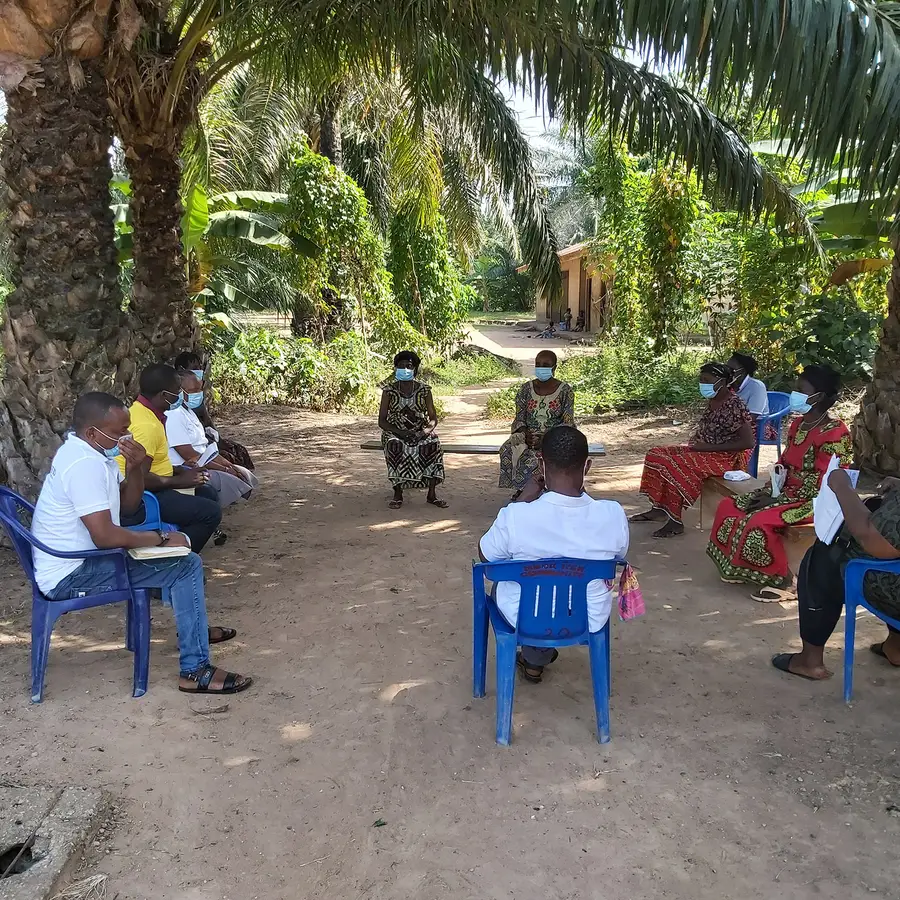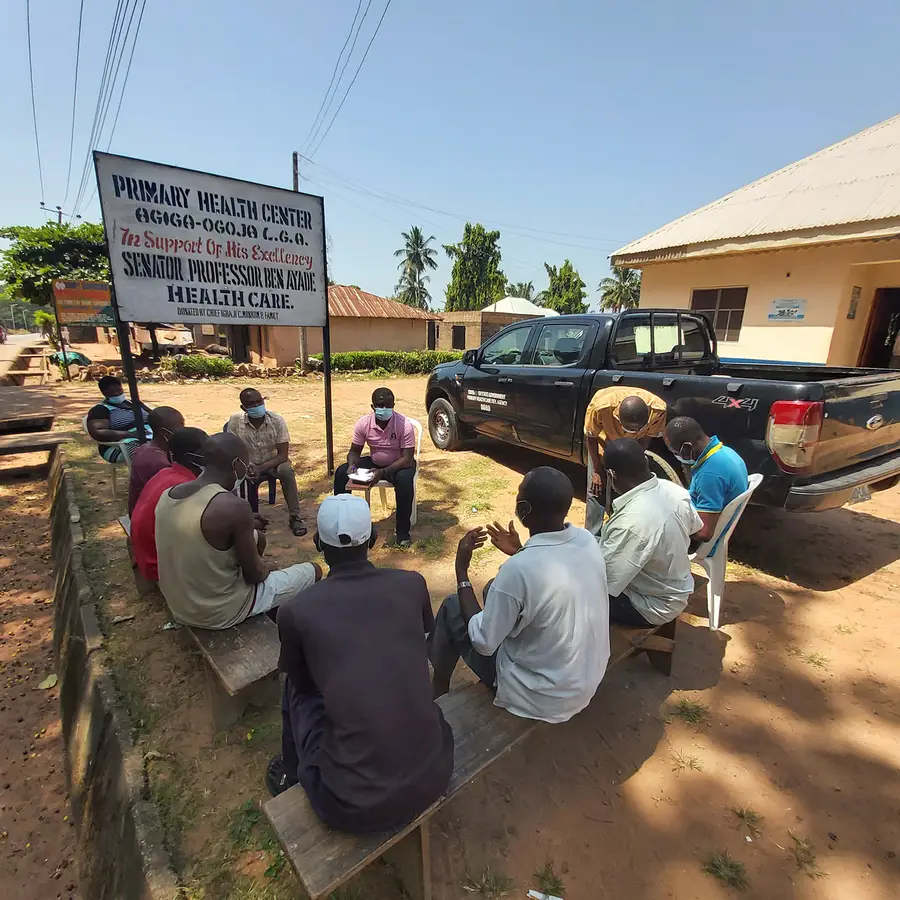
When the COVID-19 pandemic first began, activities around the world were paused, including those planned for the elimination of neglected tropical diseases (NTDs). Now, with risk mitigation plans in place, USAID’s Act to End NTDs | East program continues to support countries to resume NTD activities. While supporting the government of Cross River State, Nigeria to plan for resumption of NTD treatment campaigns amidst COVID-19, many questions began to arise: How would communities respond? What concerns might they have, given the ongoing pandemic? Rather than guess at the answers, we decided to do some listening.
NTD programs have always been community-led at their core—driven by a cadre of health volunteers, families, religious leaders, elders, and community members—with the support of government and partners. As such, we knew it was critical to understand perceptions and concerns regarding COVID-19 safety precautions and motivations to accept annual NTD treatment. What additional information should be provided before, during, and after the treatment campaign to gain and retain trust? To better understand the needs of the communities, the Act to End NTDs |East program supported listening sessions in Cross River State, two weeks before the treatment campaign was expected to begin. These focus group discussions gathered adults and youth from both urban and rural areas of two districts, namely Ogoja and Akamkpa.

Here are a few things we learned:
- COVID-19 has interrupted the usual activities that bring people together. We found that COVID-19 has caused economic uncertainty and instability for families in these communities, including loss of jobs and employment opportunities, closure of schools, and inability to participate in social activities like burials, weddings, and religious obligations. Despite interruptions to many activities, many people were still attending church.
- Participants were willing to take NTD medicines. While adult community members were apprehensive that medical facilities would not be able to cope with COVID-19, youth had a lower perception of risk. Despite some apprehension, we found that both adults and youth were willing to take NTD medicines with the additional COVID-19 precautions in place, as they recognized the importance of being treated for NTDs.
- Additional messaging on COVID-19 precautions during NTD campaigns was required. Due to the nature of NTD campaigns in reaching whole communities, we determined that we needed to provide information about COVID-19 prevention measures in place for receiving NTD treatments. We produced a public service announcement that included information about maintaining physical distance and handwashing guidelines along with NTD messages, collaborated with the state COVID-19 taskforce to include the person who produces the COVID-19 “jingle” in our activities to enable better understanding of community perceptions, and ensured that community drug distributors communicated COVID-19 prevention messages to ensure the NTD treatment campaign was conducted safely.
- Building trust and connection with communities is critical in preventing the spread of misinformation. We found that it was important to understand new communications channels and ways to mobilize people, especially when their lives have changed so much due to COVID-19. We asked participants about trusted sources and channels of information in the community, and they indicated that churches and social gatherings were the most trusted channels among youth and women. Traditional and minority ethnic leaders were noted as essential information channels in both urban and rural settings, while town hall meetings were more effective in rural areas. Radio and TV also proved to be more utilized in urban areas. Given this information, we adapted our communication strategies to ensure that messages passed through these trusted channels throughout the communities.
- Listening sessions are a good practice going forward. While NTD campaigns have always been forged at the local level, it is easy for those located at capital cities to sometimes forget how crucial community voices must be during planning and the implementation of NTD activities. During these sessions, community members were able to present concerns and challenges outside of what is normally shared, allowing the activities to be planned with these needs in mind from the start. We believe these sessions are a best practice in implementing community-level NTD activities in the future, especially amidst the challenge of COVID-19.
We hope to make continuous improvements to our listening sessions in the future, such as broadening engagement to health workers, making sure we conduct them at least one month earlier to allow time for producing messages, and involving diverse representation from the specific socio-cultural settings. Amidst the challenge of COVID-19, these listening sessions reinforced our important connection to communities, which resulted in high uptake of NTD treatment, keeping Nigeria on track to reach our NTD elimination goals.